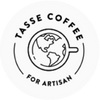Tasse Coffee CQI Q Grader Devil's Water Experience Tour
I am very interested in the "Devil's Water" part of Tasse Coffee's CQI course. This part mainly allows students to experience an important skill in coffee tasting - keen sensory identification ability.
During the course, the instructor will prepare some special water samples, which may have some special chemical ingredients or fragrances added to them. Students need to carefully identify the characteristics of these water samples through smell and taste, and compare them with standard purified water.
The purpose of this training is to develop students' keen awareness of taste and aroma. When tasting coffee, being able to quickly identify different flavor profiles is a very important skill. Even small differences can mean significant differences in coffee quality.
By smelling and tasting "Devil's Water", students will exercise their sensory responses and improve their ability to distinguish subtle taste changes. This will not only help achieve good results in the CQI course, but also play a key role in future coffee tasting work.






